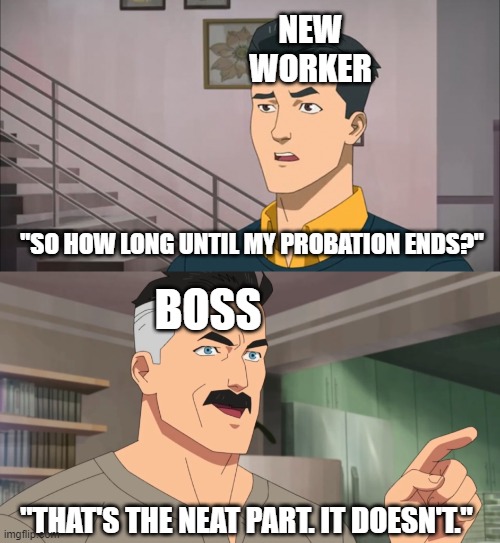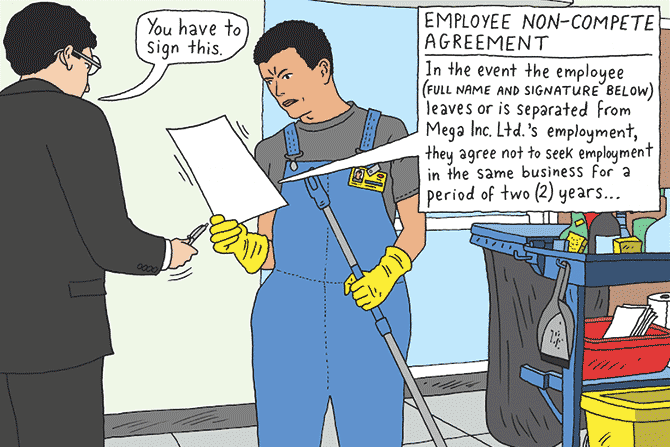
Disclaimer: This piece was originally supposed to be published on Labour Day (1 May 2022). But we realised that most of our readers probably wouldn’t be interested in reading about work during their Raya holidays, so we pushed it to this week instead.
Even today, I still remember my first “real” job.
At the time, I was a fresh-faced eighteen-year-old who had just graduated high school but wasn’t sure whether or not I wanted to go into university. While on a family outing to 1 Utama, I saw a little bakery that had a “Help Wanted” sign hanging at the window.
“You should apply!” my mum encouraged me. “It’d give you something to do aside from sitting in the house all day.“
So gathering up my courage, I walked into the store and asked the cashier if they still had any openings available. After filling up some forms and going through a quick interview a few days later, I became a brand new member of the Malaysian workforce.
At the time, I remember feeling pretty confident about myself. After all, this was just a simple job. Surely it couldn’t be harder than school, right?
But Work Isn’t Like School At All
The main difference between going to school and going to work?
For the former, you have to go. Whether you like it or not, all kids need to go to school. If you try to skip class, your parents are going to come with a big rotan to make sure you behave.
Work, on the other hand, is a choice. You don’t like your job? Then there’s nothing stopping you from quitting and moving on to something new. You’re an adult, which means that you have to take responsibility for your own decisions.
“You always have to listen to your boss!”

After my family found out that I’d started a job, I received “helpful” advice from many of my aunties and uncles. They were all well meaning and a lot of it was just simple common sense — “Make sure to come to work on time every day“, “Dress up nicely. You don’t want to look messy when serving customers“, etc.
However, there was also some advice that felt… rather outdated.
“Even if you’re not feeling well, you should still go to work,” one of my aunties said. “If you take too much MC, the boss is going to think that you’re being lazy!“
“You should stay and work even after your shift is over,” an uncle advised. “Even if you’re not being paid, the boss will be impressed when they see you working so hard!”
At the time, I just nodded along and thanked them for their advice. But even then, I couldn’t help wondering just how applicable this kind of “advice” would be for workers in this modern era.
Understanding Your Rights As a Worker

Like many other fresh high school graduates, I only had a vague idea of what worker rights actually were. However, after joining the workforce, I made sure to do some research. Imagine how shocked I was to learn that most Malaysian workers are technically not covered by our labour laws!
When it comes to Malaysian worker rights, the most relevant legislation comes from the Employment Act 1955. This act specifies all the minimum benefits that employees should receive while working.
However, it only covers workers who:
- Have a monthly salary of RM2,000 or below
- Work in manual labour
- Operate, maintain or supervise mechanically-propelled vehicles
- Perform work on a vessel (subject to certain other conditions)
In other words, if you’re a white collar office worker (like me) you technically aren’t covered under this law. Fortunately, most employers will still stick to the minimum standards applied by the Employment Act, but the specifics may vary from company to company.
If you’re planning to get an office job (or any job, really), be sure to read through the contract carefully before you sign. After all, the last thing you want is to be stuck in a toxic workplace.
So What Does The Employment Act Cover Anyway?
Here are just a few of the situations covered by the Employment Act 1955.
Wage Payments: “How much should I be paid?”

By default, most wages are paid on a monthly basis. Your employer is expected to pay you “not later than the seventh day after the last day of any wage period the wages”.
As of 1 May 2022, the minimum wage in Malaysia has been raised to RM1,500 (about RM7.20 per hour).
However, companies with less than five employees will only be required to start paying this new minimum wage after January 2023.
Working Hours: “Can my boss really force me to keep working even after my shift is over?”

Under the act, no employee can be required to work:
- more than five consecutive hours without a 30 minute rest period
- more than eight hours a day
- more than 48 hours in one week
In other words, they cannot force you to work more than that. Overtime work is optional. It is also entitled to extra pay equal to 1.5 times your normal hourly rate!
Time Off: “How much time off do we have, anyway?”

We Malaysians have so many holidays — it can be hard to keep track of them all! However, every employee is entitled to 10 public holidays a year, four of which must be:
- National Day
- the Birthday of the Yang di-Pertuan Agong
- the Birthday of the Ruler or Yang di-Pertua Negeri of the state where you work (if you work in KL or other federal territories, this will be Federal Territory Day)
- Workers’ Day or Labour Day
Aside from that, Malaysian workers are also entitled to Annual Leave and Sick Leave. The amount of leave that you can take is determined by how long you’ve been working at the company.
- Less than 2 years: 8 days Annual Leave, 14 days Sick Leave
- Between 2 to 5 years: 12 days Annual Leave, 18 days Sick Leave
- 5 years or more: 16 days Annual Leave, 22 days Sick Leave
Note that this Sick Leave period only applies if you’re not in the hospital. If you’re hospitalised (and receive the relevant certificates from your doctor), you can claim up to 60 days of Sick Leave.
Maternity Leave: “Will I need to quit my job if I get pregnant?”

Good news, ladies: you won’t need to choose between your work and your family.
Malaysian women entitled to no less than 60 consecutive days of paid maternity leave for their first five children. This leave cannot begin earlier than 30 days of her confinement or later than the day immediately after her confinement.
It is actually illegal to dismiss a woman who is on maternity leave or within 90 days of her maternity leave if she is medically recognised as unfit for work due to her pregnancy. However, note that it is still possible for a woman to get fired due to her pregnancy if it is part of her terms of employment — which is another reason why you should always double check all your contracts before signing anything.
Sadly, there is no paternity leave available in Malaysia yet, so if you’re a new dad you’re kinda out of luck.
Probationary Periods: “How long will I need to be in probation before I’m officially a full time employee?”

Actually, probationary period are not required by law.
While it usually lasts about three months, the exact period will depend on your specific company. An employer can even extend your probationary period if they don’t like you!
That said, whether you’re on a probationary period or not, you’re still generally eligible for the same rights as regular employees. Again, and I cannot stress this enough, if you’re getting a new job, be sure to read through the contract carefully before signing. The employment contract should clearly state the terms and conditions of your probationary status in order to avoid any future disputes.
Non-compete Clauses: “Can my old boss stop me from getting a new job in the same industry?”

Some companies will ask you to sign a “contract” which prevents you from joining any competitors after you leave. However, the truth is that these types of contracts cannot actually be enforced.
Under the Contracts Act 1950, any agreement which restrains a worker from “exercising a lawful profession, trade, or business of any kind” is considered void.
As this is a separate piece of legislation, it applies to all employees whether or not you’re covered by the Employment Act. If your ex-boss tries to use such a contract to threaten you, it’s time to speak to lawyer.
Time to Get That Bread

I worked in that little bakery for about four months before quitting to go to university. During that time, I learned two very valuable lessons:
- Although pastries are delicious, eating too many of them will make you fat
- Compared to generic supermarket white bread, fresh bread is amazing… but it’s also seriously overpriced. Just bake your own bread at home
By the time I left that job, I had a fat bank account and an even fatter stomach. As far as first job experiences went, it honestly could have been a lot worse. I had a relatively simple job, an understanding boss and all the leftover pastries I was willing to eat.
However, not all first time job seekers can get so lucky. If you need help identifying potential employer red flags, be sure to check out:
“We’re a Family”: Here’s Why Companies Should Stop Saying This









